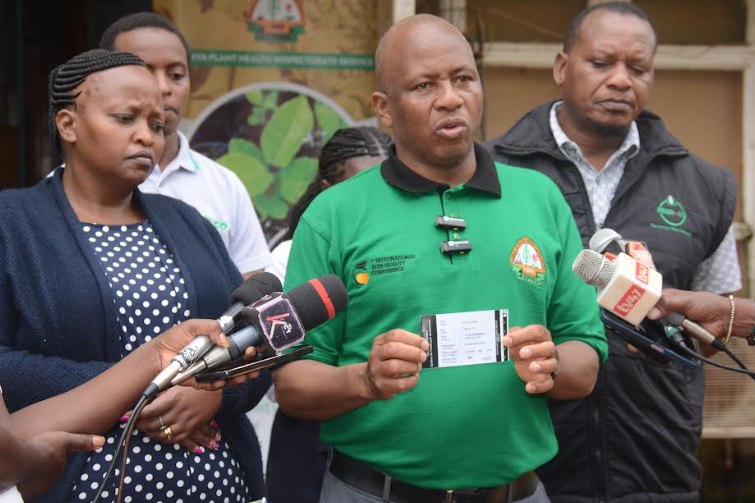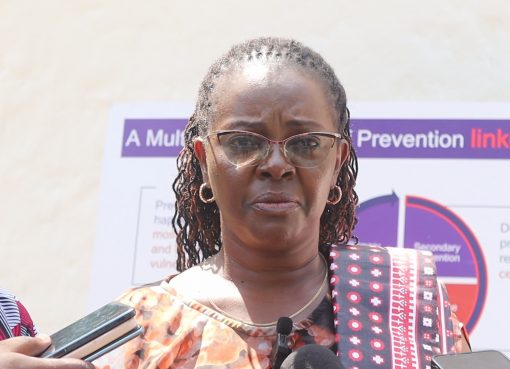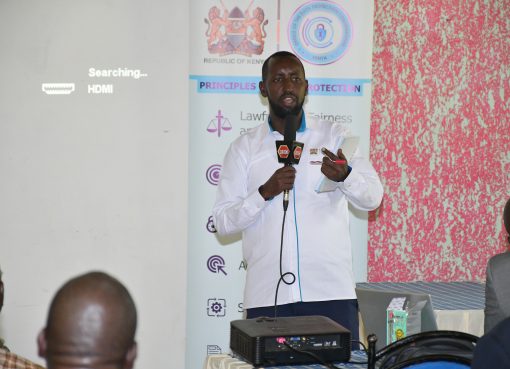Kenya Plant Health Inspectorate Service (KEPHIS) has kicked off a sensitisation exercise, meant to enhance farmers’ capacity to identify certified planting seeds in Meru County.
This comes after cases of unscrupulous dealers were reported in the county. Two people were arrested for selling fake seeds to farmers, while three others were found selling seeds without licenses.
Speaking during a press briefing, Simon Maina, Director of Seeds certification and plant variety protection at KEPHIS, said the exercise will ensure that Meru farmers can tell the difference between certified and fake planting seeds and, in return, get value for their money.
“The most important thing in the fight against fake seeds is talking to farmers and sensitising them so that they can know what to look out for to tell whether seeds are authentic or not,” said Maina.
The first thing to do this, he said, is to buy planting seeds from a licensed stockist who has been selling them throughout the year as opposed to those who come out to sell them because a rainy season has set in.
“The licensed stockists cannot afford to sell uncertified seeds because by this they risk having their licenses cancelled,” said Maina.
He said the second thing is to look out for a KEPHIS sticker on the seeds’ packet that has a scratch panel and the farmer is supposed to scratch it and send the number found there through a short message to 1393.
After sending the number, and if the seeds are certified, the farmer is supposed to get an instant answer indicating the information on the seeds’ packet as well as the lot number for that package.
If the received message matches the one on the packet, Maina added, it means the seeds are certified.
“After buying the farmers are supposed to be issued with a receipt by the seller in case of any follow-ups in future. They are also supposed to take care of the seeds by ensuring that they are kept in a cool and dry place and before planting, they should check whether the seeds are broken or infested by pesticides,” said Maina.
In case of any fault, he added, the farmer is supposed to report to any administration officer or to KEPHIS for an action to be taken.
During planting time, he said, the farmer is supposed to place the seed separately from fertilizer or manure to avoid it being damaged and in case two weeks are over and the seeds have not germinated, they are also supposed to make a report since they only require seven days to have germinated.
Some farmers report such incidences two months after planting but this becomes hard for us to determine what the problem was.
The farmers are also advised not to dispose of the seeds’ packets or receipts so they can use them in case of complaints even when they don’t get the expected harvest, added Maina.
For potato farmers, the Director advised that they should look out for a large KEPHIS label on the packet which is hard to tear, adding that there were unscrupulous dealers who were photocopying the original stickers and using them to dupe farmers.
He said the inspectorate has been moving all over the country, especially where issues of fake seeds have been reported and so far, there are 15 active cases in court dealing with uncertified seeds.
“We are also calling on farmers to give us information whenever they suspect people selling fake seeds for an action to be taken by the relevant authorities,” said Maina.
He said in the certification of seeds, the inspectorate is usually guided by the Seeds and Plants Varieties Act, which gives them required standards to be met to ensure farmers get quality seeds.
He added that the same law also sets out strategies to ensure those violating it are fined.
He clarified that the law is not out to fight farmers carrying out an informal exchange of Indigenous seeds as rumours in the social spaces have it.
“In any case, this law targets those who just pick maize or other seeds from their farms, colour them, and move on to sell to unsuspecting farmers telling them they are certified,” said Maina.
Imenti North Deputy County Commissioner Odilliah Ndeti called on stockists to ensure they have their records right and deal with certified companies to ensure the seeds they sell to farmers are certified.
By Dickson Mwiti





